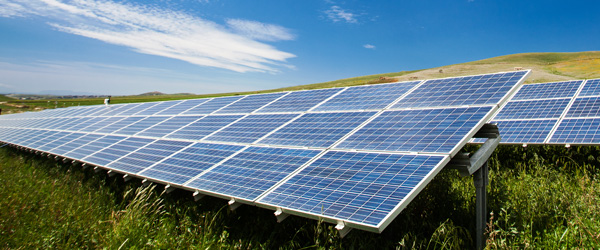Trying To Save The Environment? Follow These Green Energy Tips

What will green energy help you accomplish? It lowers utility bills and lets you help out the environment. How can you make changes? Read the following article for suggestions on what you can do to help.
You can make a difference and save energy simply by taking steps to use less energy every day. When not using a certain appliance, unplug it from the outlet. Also, remember to turn off lights when they are not needed. This may be a simple tip, but it does save you money.
Lower heating costs with solar heating systems for your pools or hot tubs. Solar water heaters tap into the abundant and free energy offered by the sun. Water heated by other methods, like natural gas, propane, or electricity, is not an efficient method. These upgrades may cost more, but qualify for tax deductions, too.
Save electricity while becoming a more conscientious energy consumer by unplugging the chargers for all your electronic gadgets when they aren’t in use. Even if you are not charging your laptop, cell phone or mp3 player, just having it plugged in uses energy.
Wind Turbine
Are you the owner of a farm? If you do, then you probably own property. This might be an opportunity to rent a portion of that property to a company that will build a wind turbine on it. The wind turbine will provide free energy without taking up much room. Your neighbors will also benefit from this energy source.
Think about getting solar heaters to heat up your water at home. If you live in a sunny climate, you can use a solar water heater year-round. It is still a good idea to keep a regular water heater in case of excess hot water usage or overcast weather.
Try drying your laundry outside in the sun whenever possible, rather than using a dryer. You’ll love how your clothes smell after being sun-dried. Line-dried items will be just as clean and dry as they would be if you used the dryer, but they will also smell so much fresher. In addition, you will save a lot of money on your monthly utility bills.
When not using things, turn them off. So, make sure you turn things off like the computer, TV, or lights when you leave a room. Use a power strip for your home electronics, and turn it off when you aren’t using the equipment. If something is left in standby mode, it is still wasting power.
Passive Solar Power
Take the time to learn about active, and passive solar power. Passive power is used immediately and is cheaper, but active power has the ability to store energy for later use. You need to install solar panels and systems if you want active solar power. Passive solar power is more basic and simply uses your home in its existing state as heat storage.
Be aware of federal and state rebates for updating your home with renewable energy. In some instances, the local company gives rebates for upgrading to green tech. You may also get state and federal tax deductions for making your home more energy efficient. Rebates and credits will help to offset the cost of implementing green energy technology you want to add to your home.
Paperless Helps
Opt for emails over paper whenever possible; get on no-mail lists for catalogs and junk mail. Try to use paper as little as possible. Going paperless helps the environment by limiting the amount of deforestation as well as the energy costs associated with paper communications. In addition, going paperless helps the environment, something that everyone benefits from.
Unless you’re freezing to death, don’t turn the heat all the way up. If it is a little chilly, simply put on a sweatshirt, and pair of sweatpants. Having the heat up high wastes a lot of energy.
Check and manage your watt usage. If you do not know the formula to figure out the energy each appliance uses, there are tools like a Kill-A-Watt that can give you the information instantly. Plug your appliances in to these devices to find out what amount of energy is required each year, month or hour to run it. This can let you see how much your devices really cost you.
Write reminders for energy-efficient goals and check your utility bills. By being aware of the energy you use, you can start to reduce that consumption. If you form good habits of cutting your electric or water usage, turning off appliances and lights when not in use becomes automatic.
Consider bamboo items when making a wood purchase. Bamboo is technically grass and is a “green product”, but it is often much stronger than other available woods. It replenishes itself rapidly, unlike most woods, and can be used for flooring, furniture and nearly any other wood product. This saves energy on the recycling and production end of manufacturing products.
Lots of people want to go green but few put the effort in to actually make it happen. This article should have offered some ideas for you to go green!